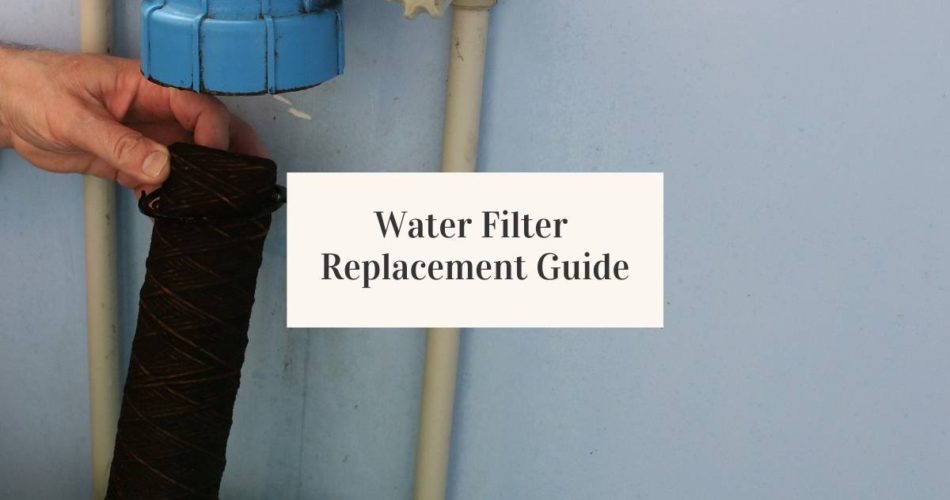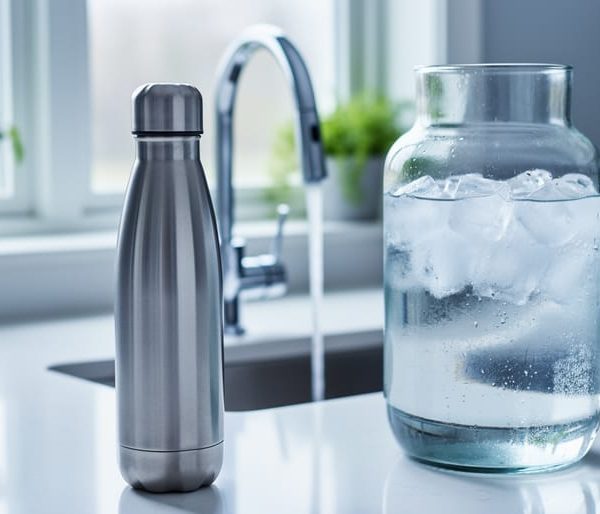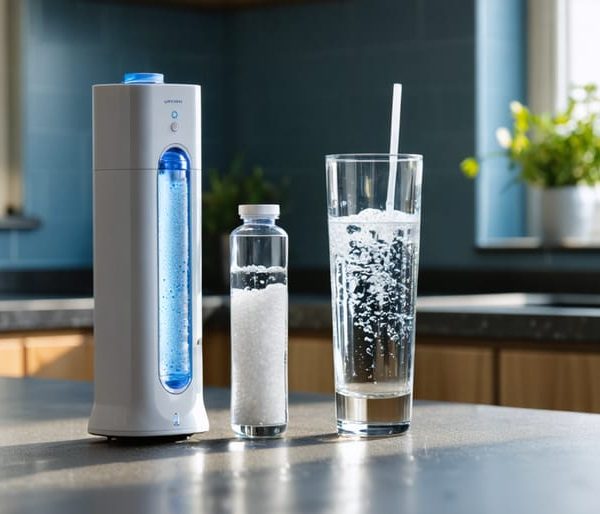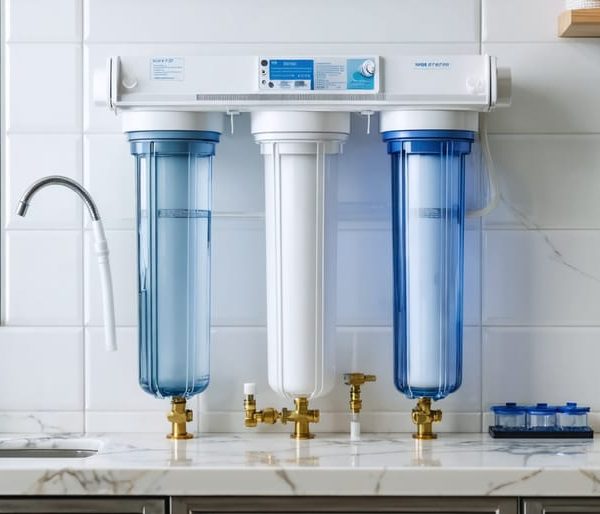Part of maintaining your water filtration system is a regular water filter replacement. In general, you should change your water filter every 12 months to maintain high water quality and to avoid clogging. Some water filters should be replaced more often while others need to be changed only every couple of years.
In this water filter replacement guide, you will find answers to the most common questions asked about replacing water filters.
Signs It Is Time to Replace the Water Filter
Apart from the gallons filtered or set timespan, there are other notable signs that your filters need replacement.
Water Taste
If you detect a weird taste or smell in your water, that is a sign you need to change your filter. The water may become salty or have a metallic taste.
Milky Appearance
You notice the water is colored or has some sediments. At this point, replacement is advised. If unsure, you can put the water in a clear glass and hold it up against the light. If the water is cloudy or has some sediments, it is time for a new filter.
Water Pressure
If your water flow rate seems to be decreasing, then you may need to change your filter.
Visual Indicators
Some filters come with indicators. The indicators are activated when the filter wears out. It essentially lets you know when you need a new filter. Manufacturers also offer filters that can be visually inspected. You will note debris, clogging, or scale buildup when the filter is worn out.
Odd Noises From the Faucets
This is an audible indicator that your water filter needs replacement. These noises are common with reverse osmosis filters.
Some manufacturers send email notifications to their customers according to the water usage guidelines. The email will have recommendations on when to change your water filter.
What Affects the Lifespan of Water Filters?
Some filters have a specific lifespan. For instance, the reverse osmosis membrane lasts 2 to 3 years. A refrigerator filter needs replacement every six months. Smaller filters will generally need changing after shorter periods. Complex filters can take some time before you need to replace them.
Apart from the set guidelines given by the manufacturer on the lifespan of a filter, some factors influence these timelines. These include:
- Water quality is a critical factor. If the supply has many contaminants, It will negatively affect the filter and reduce the water flow rate.
- If your household consumes a lot of water than the given average, then the filter will not last long.
- Water hardness affects the filter. It is the amount of mineral ions in your water supply. Where there is a higher mineral concentration, limescale builds up and clogs the filter.
- The state of your water when it gets to the filter. For instance, tap water is typically clean and free of sediments. Filtering it will not have a great impact on the filter. Water from wells or rivers will typically have a greater impact on the filter.
Why Changing a Water Filter Is Important
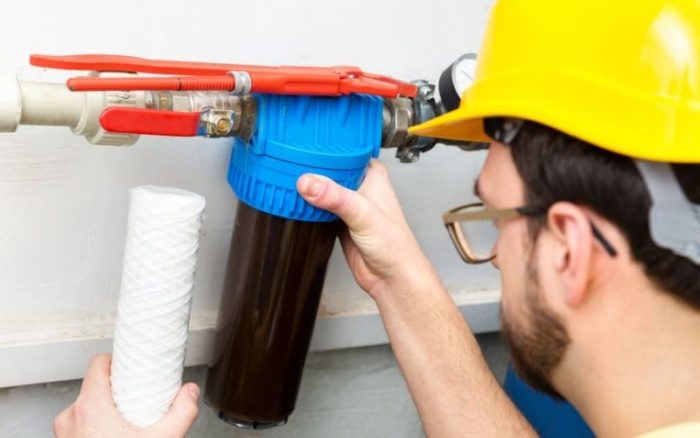
Water filter changes are imperative to ensure the continued effectiveness of your water filtration system. We recommend that you have a backup filter on hand to replace a failed one.
A failed filter means that you will no longer have drinking water. Filtered water means that you will avoid harmful contaminants that may adversely affect your health.
A failing water filter affects the water pressure, which slowly decreases. It will ultimately affect how well your appliances work. This is especially true for whole house filters. For instance, showering will be problematic until the filter is replaced.
In areas where hard water is predominant, you will find considerable scaling on the pipes and filter. It will affect the overall water quality and limit the water pressure.
Every household is different; therefore, it is not mandatory to replace the filter as indicated by the manufacturer.
Replacement also depends on water quality. Tap water from local utility companies is reliable in most cases. Wellwater may have a lot of debris which will burden your filter.
How much water the household uses is a key indicator. The water usage rate is measured in gallons; therefore, it depends you filter how often. Replace the filter when the recommended gallons of water has been filtered.
How Often to Change Water Filters
How often you need to replace your water filter is determined by the gallons of water it filters. It also depends on the brand, model, and quality of the water filter. Here are some guidelines for some of the common filters.
Refrigerator Water Filters
It is common for a refrigerator to have an ice maker or a water dispenser. A water filter must be present that filters the drinking water for the water dispenser.
Most households will forget about these water filters until water starts tasting bad or a bad odor from the refrigerator.
Most manufacturers recommend replacing the refrigerator water filter cartridge after every six months. Some vendors show on the website a menu on how often the water filter cartridge needs to be changed. You can also follow the guidelines in the manual to get the manufacturer’s recommended timelines.
You can get the refrigerator water filter cartridge from local appliance stores or the manufacturer. The cost of the cartridge will depend on the model of the refrigerator and the output of the dispenser.
If the refrigerator water is drawn from the main supply line in your house, the filter in the mainline will also have to be replaced periodically.
Water Pitcher Filters
A pitcher water filter needs frequent replacement depending on the usage. The filter indicates when it needs replacement.
Pur and Brita filter pitchers are two high-quality pitcher water filters known for purifying your tap water, eliminating chlorine and heavy metals. You can also change the filter when the taste or smell of the water becomes bad.
Unlike the refrigerator water cartridge, the replacement cartridges for Brita pitcher filters are easily available and inexpensive. They are convenient and cheaper to maintain.
Changing a Bottle Filter
Changing the bottle water filter will depend on the usage rate. Manufacturers provide on average 25 gallons of drinking water.
For a normal 700ml bottle, if the bottle is used more than two times per day, change the water filter after 3 months. For those who use the bottle at least twice per day, we recommend that you replace the water filter after 4 months. If the bottle is used once, you can change the filter after 6 months.
Whole House Water Filter
Whole house water filters come with various filters, a sediment prefilter, sub-micron postfilter, and iron filters. All these ensure that the filtered water meets the minimum criteria for usage in the household. Expect the sediment prefilter to be the first to fail. There are a few things to consider when changing a whole-house water filter:
Changing the Sediment Pre-filter
You will need to replace the sediment pre-filter after three to six months. The prefilter is a standard component of the whole house water filter that catches sediments. Over time, dirt and other particles build up, which can result in clogging.
You can always change your filter when you notice signs like decreased pressure and a color change.
Changing the Sub-micron Post-filter
We recommend replacing the sub-micron filter every nine to twelve months. These filters are typically useful in eliminating living pathogens such as bacteria in water.
Not every whole house water filter has sub-micron post-filters. It depends on the water quality and is mostly found in areas where well water is predominant.
Changing the Iron Filters
Replacing iron filters largely depends on the mineral ions present in your water. If the iron levels are high, it means you will have to change the filter frequently. There are no set timelines for changing these filters.
All you can do is keep checking the filter. Another indication that the filter is failing is a decrease in the water pressure. It may mean that the pipes are corroded, which makes drinking water unsafe.
Reverse Osmosis (RO) Filters
Like the whole house water filter, RO filters have several components which act separately to purify water. The pre-filters are often replaced after every six to twelve months. This is the same for post-filters as well.
The membrane in an RO filter needs to change every two to three years. Check also for any decrease in the amount of water passing through the RO system.
Faucet-Mounted Filters
Most faucet-mounted will need a new filter every two to three months. Check the manufacturer’s recommended timelines. How often you replace these filters will depend on how much water your household needs. Water quality also plays a significant role.
The advantage of faucet-mounted filters is that they are inexpensive, and easy to maintain and replace. The downside is that the filters are used only for cold water and require mounting.
Shower Water Filters
Change your shower filter every six months. Changing the filter of your showerhead may depend on how much water you use.
High rate users may need to change every 3 to 4 months. Average users can use the filter for up to 5 months.
With a low use rate, the shower filter can serve you for at least 6 months. After six months, the filters are likely to be choking with sediments. Chlorine and heavy metals are also filtered, which decreases the effectiveness of the showerhead. You are most likely to see a decrease in pressure or soap scum as you wash.
Water Filters With Indicators
Some filters come with indicators showing alert levels for the filters. When the indicator turns red, it means that your filter requires urgent attention.
Setting Up a Reminder
Another common trick we have seen people use is setting up reminders. This, coupled with ordering the replacement filters beforehand, may save a last-minute rush.
You need to check the manual of the water filter and note the recommended timelines. Mark this in your calendar as a reminder and order it.
Recommendations
Keep safe the manual or the packing material for the filter in most cases; it bears the recommended timelines and instructions on changing your filter. It is also important to preorder the filter change well in advance.
You can subscribe to the vendor’s alert. They can send you emails reminding you to order or change the filter.
Change water filters by yourself if you are sure of what you are doing. It is also paramount that you leave the water running for some time after you have replaced the old filter.
The Cost
Depending on the filter you choose, costs to change a water filter may average from $40 to $400. The cost of replacing filters will vary from one filter to the other.
Replacing a filter may not necessarily demand a qualified contractor. You can take it up as a DIY project, especially for simple filters like water pitcher filters. For a whole house water filter, we recommend a certified contractor who will not destroy your plumbing.
